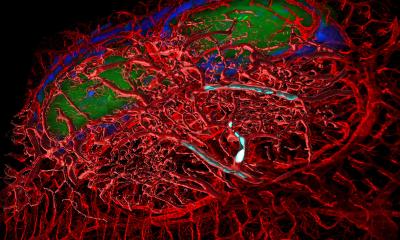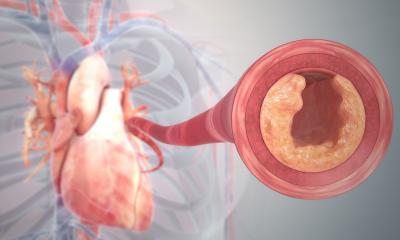Diabetes doubles CVD risk
Mark Nicholls reports
A team led by UK-based researchers has found that having diabetes doubles the risk of developing a wide range of blood vessel diseases, including heart attacks and different types of stroke. The consortium, headed by Dr Nadeem Sarwar and Professor John Danesh of the University of Cambridge, analysed data from the individual records on 700,000 people, each of whom was monitored for about a decade in 102 surveys conducted in 25 countries.

It demonstrated that people with diabetes are at about two-fold higher risk of developing several vascular diseases, including heart attack and stroke subtypes. However, what surprised the research team was that only a small part of the effects of diabetes was explained by blood fats, blood pressure, and obesity. ‘In contrast with the strong associations observed with diabetes, our study demonstrated that circulating fasting glucose concentration is only modestly and non-linearly related to vascular risk, with no material association at values between 3.9 and 5.6 mmol/L,’ said Dr Sarwar, Lecturer in Cardiovascular Epidemiology at the university’s Department of Public Health and Primary Care, adding:
‘Our findings underscore the importance of identifying people with diabetes and appropriately managing their risk of vascular disease. They highlight the need for better prevention of diabetes coupled with greater investigation of the mechanisms by which diabetes increases the risk of cardiovascular disease.’
Dr Sarwar said that information on age, sex, smoking habits, blood pressure and blood fats is routinely collected to assess risk of developing cardiovascular disease. But, he added: ‘Regarding population screening strategies in people without diabetes, our findings suggests that assessment of fasting glucose concentration in such people does not help to better identify people at increased risk of vascular disease than measurement of conventional risk factors alone. This suggests that other mechanisms may be responsible and await discovery.’
Diabetes is now estimated to be responsible for 1 in every 10 deaths from cardiovascular disease, or about 325,000 cardiovascular deaths a year in all industrialised countries put together.
Type 2 diabetes represents one of the most significant global challenges to health with the rapidly rising prevalence of this condition thought to reflect the impact of widespread changes in lifestyle and diet on genetically susceptible individuals.
Health experts acknowledged that, while currently available therapies can mitigate the effects of diabetes, improved approaches for prevention and treatment are urgently required.
Cardiovascular disease is responsible for about 17 million deaths annually and diabetes has long been recognised as a major risk factor for cardiovascular disease. But the extent of its effect on different blood vessel diseases has been debated.
Regarding circulating markers of dysglycaemia and vascular disease, Dr Sarwar said that reasons for the observed lack of association with fasting glucose levels in the ‘normal’ range were unclear. However, he added that more detailed study of other markers of dysglycaemia (such as HbA1c, post-load glucose, insulin) should help clarify whether different markers of dysglycaemia have divergent associations with vascular risk.
20.08.2010





